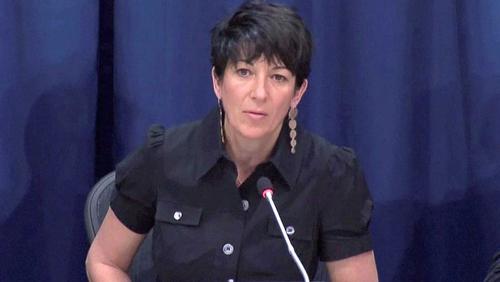Turley: Could The Maxwell Conviction Be Tossed Over Juror Misconduct?
Ghislaine Maxwell’s conviction has been widely celebrated as bringing some justice to the victims of Jeffrey Epstein. However, that moment may prove fleeting in light of a startling disclosure made by one of the jurors to Reuters this week. A juror identified only by his first two names (“Scotty David”) admitted that he was able to sway fellow jurors by discussing his own experience with abuse. It is not clear if he disclosed that prior abuse on the juror questionnaire as part of the voir dire process. The disclosure could give Maxwell a strong argument for reversal if the prior abuse was not revealed and was then used in the jury room to pursue the jury after it deadlocked in its proceedings.
David, 35, told the Independent that the room went silent when he disclosed his past abuse. What is most concerning is that he seemed to suggest that his account was used to overcome the problem that jurors had with the failure of the victims to recall key facts in their testimony. He also reportedly used his own experience to explain the delay in the victims disclosing their abuse.
He is quoted by Reuters as saying that “when I shared that, they were able to sort of come around on, they were able to come around on the memory aspect of the sexual abuse.”
That is troubling in itself. That is precisely why such past experiences are the subject of intense review during voir dire. The 230 prospective jurors were given questionnaires asking, among other things, if they or anyone in their families had experienced sexual abuse.
David could not remember if he answered affirmatively to that question and said that he “flew through” the questionnaire.
We have previously discussed major juror misconduct questions in high-profile cases like the prosecutions of Roger Stone. and Derek Chauvin. The First Circuit recently overturned the sentence of Boston Marathon bomber Dzhokhar Tsarnaev due to juror bias. Nevertheless, I have been critical of judges who turn a blind eye to juror bias, including false answers on jury forms.
This would be exceptionally serious if a juror failed to disclose prior abuse and then used that prior abuse to influence jury deliberations. The Supreme Court has repeatedly declared that the “minimal standards of due process” demand “a panel of impartial, indifferent jurors.” I expect we will learn soon if the juror failed to disclose such abuse but it would be odd, if he did, that the defense did not question him about it.
Tyler Durden
Wed, 01/05/2022 – 13:38
via ZeroHedge News https://ift.tt/3JHjjsZ Tyler Durden
